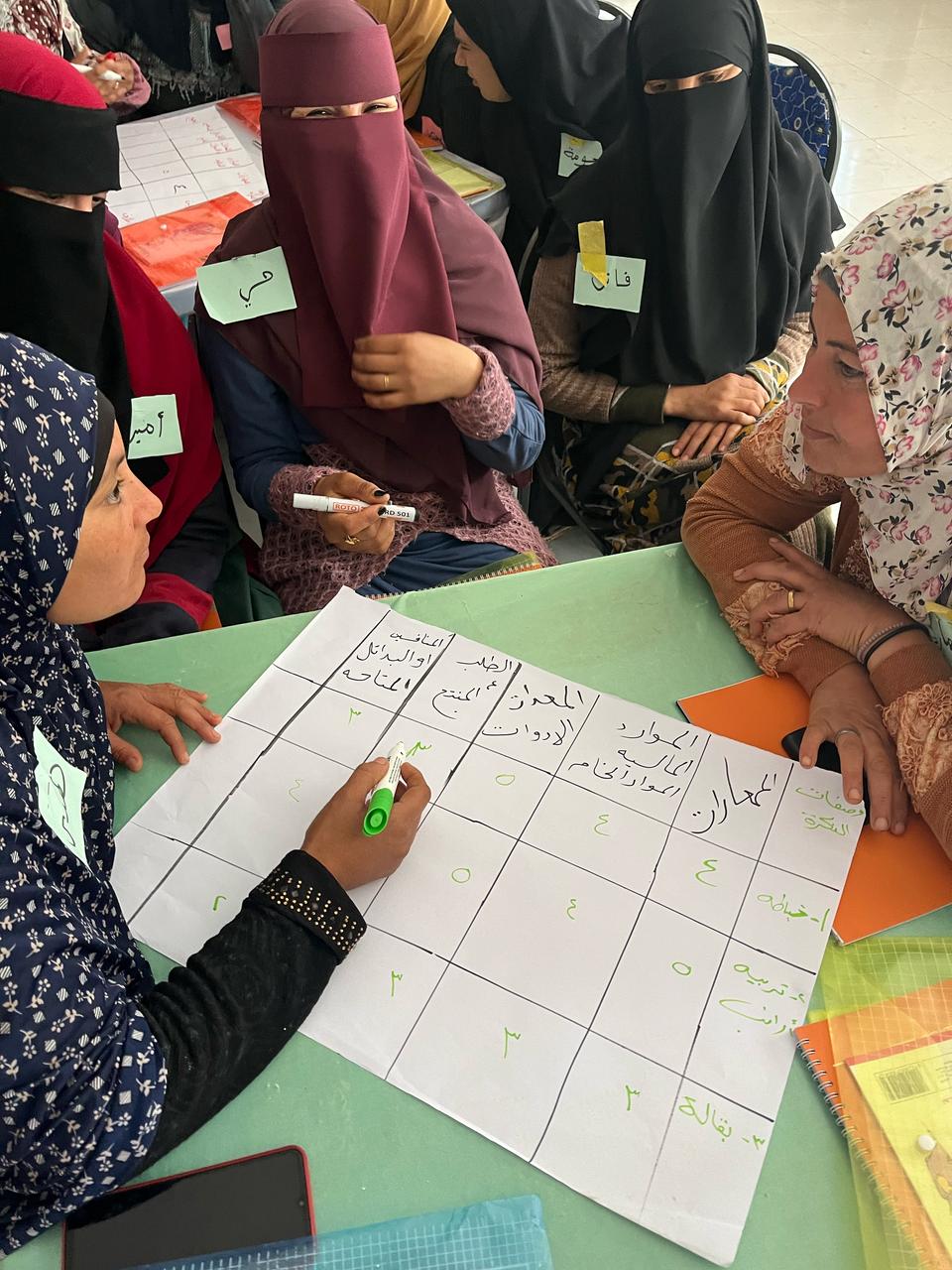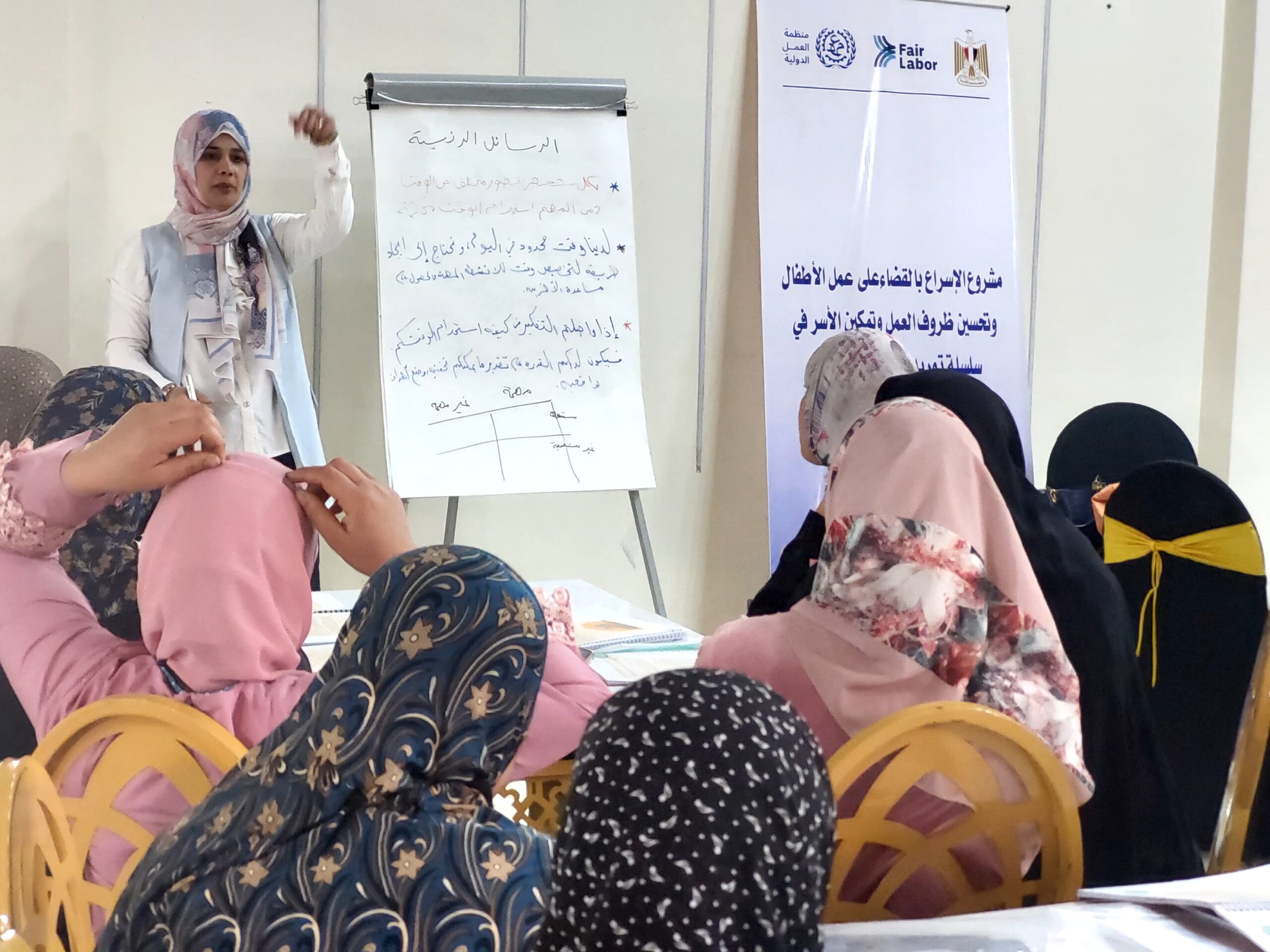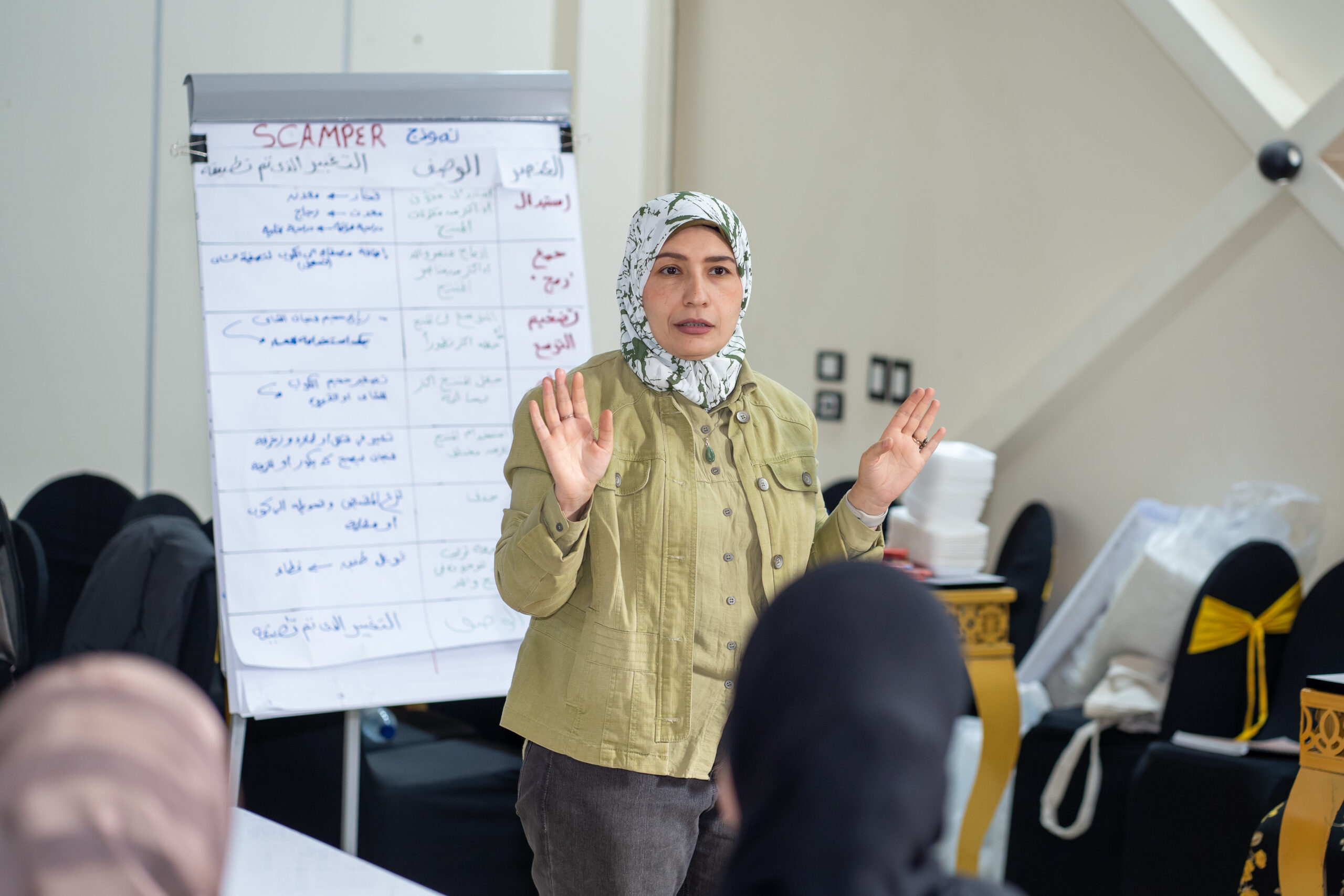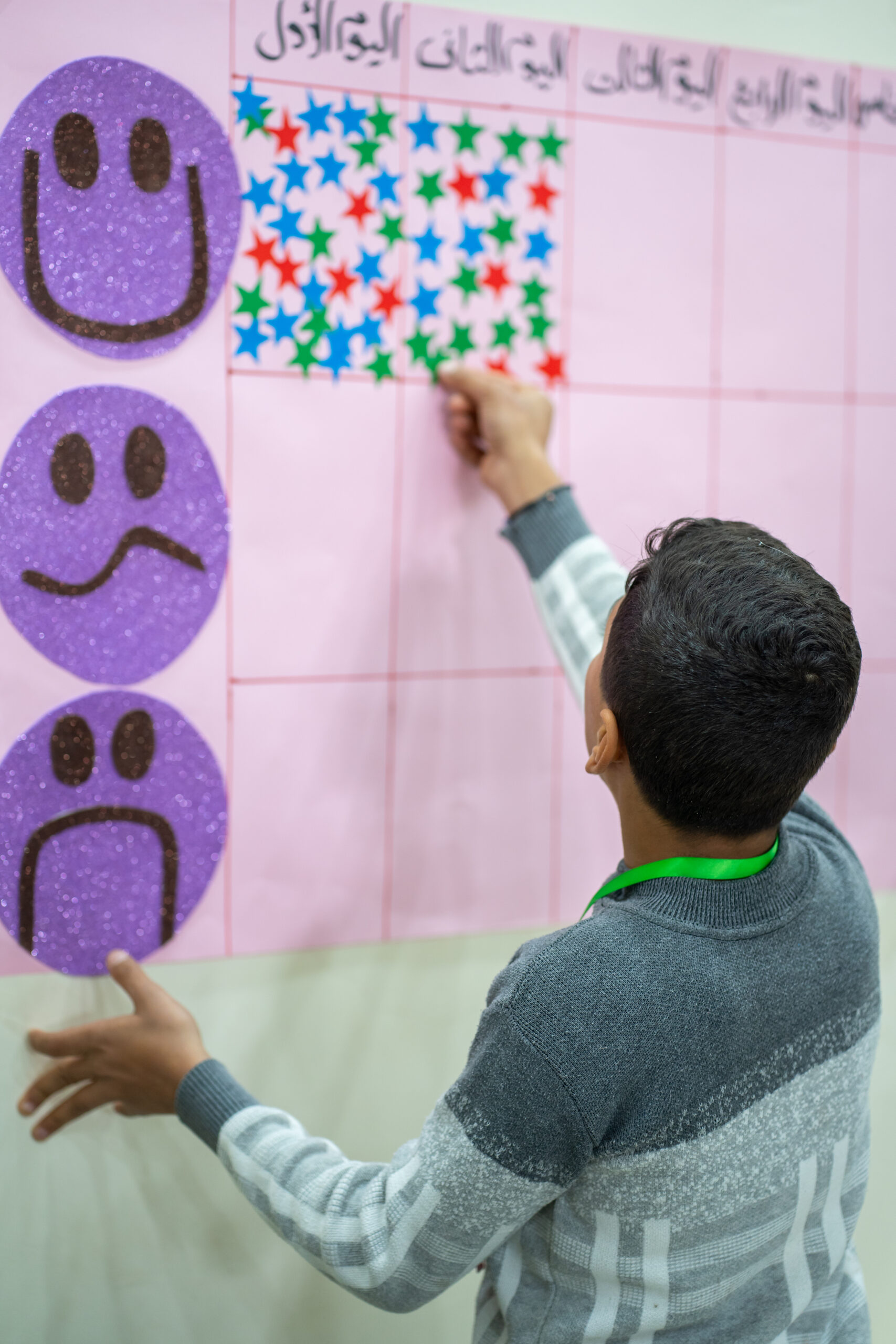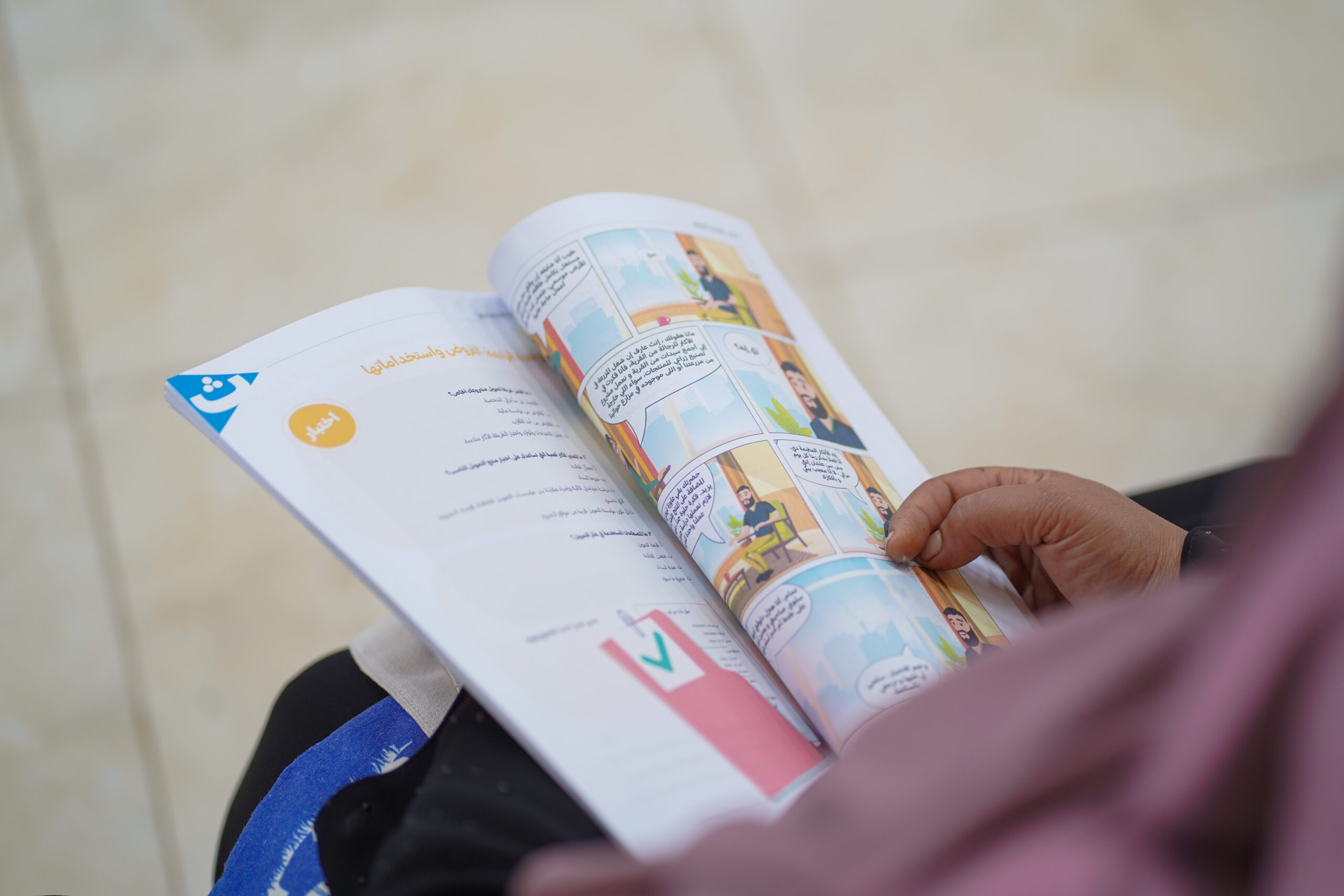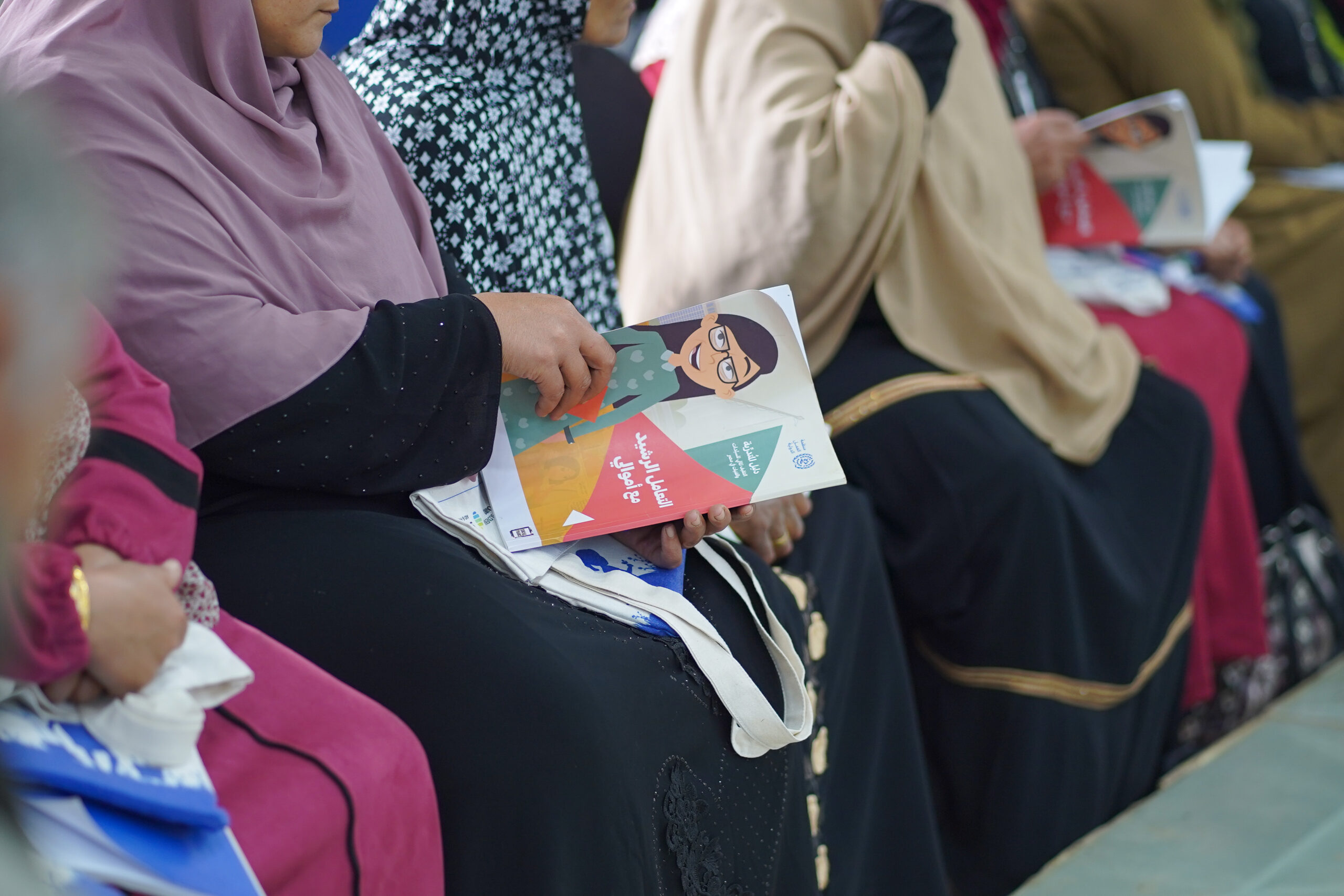Harvesting the Future - Jasmine in Egypt
The Fair Labor Association, the International Labour Organization (ILO) office in Egypt, and more than 19 national and international producers and purchasers of jasmine and jasmine derivatives and products are working together to promote child protection and decent working conditions in the jasmine sector in Egypt. The Government of Egypt (17 ministries and agencies) and 14 local civil society organizations also are active partners in the award-winning project.
Joint efforts to improve labor rights and working conditions in the jasmine supply chain include strategies to promote fair compensation and build the economic resilience of families; strengthen child protection measures and improve children’s access to education and childcare; improve human rights due diligence systems at the processor level; and generate support for legal and policy initiatives, including social protection measures.
The ILO is leading the collaboration with the Egyptian Government, including coordination with the ministries of labor, social solidarity, agriculture and land reclamation, and education and technical education, as well as the national councils for childhood and motherhood, and for women.
FLA and the ILO are conducting intensive field-level activities in seven jasmine-producing villages, in collaboration with several local civil society organizations and jasmine suppliers, including A. Fakhry & Co., Hashem Brothers for Essential Oils and Aromatic Products, Machalico S.A. for Aromatic Essential Oils & Concretes, Herbal Family Group, and Fridal for Aromatic Industries.
International companies are participating in, and have strongly committed to, the objectives of the project, including Coty, dsm-firmenich, Givaudan, IFF, The L’Oréal Groupe, MANE, Robertet, Symrise AG, The Estée Lauder Companies, Avon International, Groupe Rocher, and SHISEIDO.
Year One: May 2024-April 2025
During the first year of Harvesting the Future (HTF) – Jasmine in Egypt, project partners provided direct support to 1,200 farmers, 7,500 workers, and 2,500 children and their families across seven villages in Gharbia (Shoubra Beloula, Nabas, Sorad, El Serw, Kom El Naggar, Nagrig, and El Ayary). Specific accomplishments from the first year of the project are outlined below.
1. Supporting living wage/income for adult workers and small farmers and building economic resilience
After calculating what constitutes fair compensation for workers, based on current practices, previous studies, and international standards, FLA introduced a fair compensation methodology paper and is working with the project partners to implement it. FLA also developed multiple document resources, including a living wage paper, to provide partners with research-based recommendations for supporting a living wage for workers. The team also launched financial education and economic empowerment programs for jasmine pickers and workers. Economic empowerment activities have included:
- Providing training on entrepreneurial and life skills to 353 pickers and farmers (298 women and 55 men) across four villages, supporting a total project target of 1,200;
- Providing training on financial literacy to 293 pickers and farmers (241 women and 52 men), supporting a total project target of 1,200; training included access to financial services, such as assistance opening 253 Meeza card (an electronic prepaid card) accounts and 17 savings accounts, and securing four microloans; and
- Creating two village savings and loan accounts (VSLAs) within two supply chains, supporting a project target of five VSLAs.
2. Availing education opportunities and child protection measures for at-risk children
The HTF team facilitates community-awareness sessions and works closely with national child protection committees to secure remediation and rehabilitation support for affected children. In addition, FLA worked with NGOs to facilitate key activities. The Ministry of Social Solidarity (MOSS) is piloting a one-night childcare facility for the children of local workers. Plan International NGO was selected for scaling up educational opportunities and apprenticeships, child educational and recreational activities and awareness session clubs, and community mobilization, and strengthening local child protection systems (case management, psychological support, and referrals). Activities to address child labor included:
- Providing 400 community awareness sessions on child labor, reaching 93 farmers and pickers (75 mothers and 18 fathers), and 35 jasmine collectors, among all attendees;
- Offering sessions to 66 children (29 girls and 37 boys) through the ILO’s SCREAM Program (Supporting Children’s Rights through Education, the Arts and the Media);
- Hosting train-the-trainer sessions on SCREAM to 15 local trainers (11 women and four men); and
- Enrolling 885 children in recreational activities twice per week during the 2024 harvest.
3. Improving human rights due diligence systems at the processor level, both at own operations and supply chains
Improving monitoring systems for child labor in jasmine fields
To ensure safe working conditions during the jasmine harvest, the project trained 26 monitors embedded within local jasmine suppliers’ teams. The monitors, who cover 21 villages and more than 150 hectares, visit farms at night, when jasmine is picked, and identify, refer and case-manage any children working in the fields. Monitoring activities included:
- Visiting more than 22,000 pickers during the 2024 harvest, comprising 700 daily visits, or 5,000 visits per week;
- Profiling 18,822 pickers and identifying 16,311 children across three supply chains;
- Identifying 1,634 farms as medium-risk areas for child labor;
- Detecting two child labor cases: one within the supply chain (which was remediated internally by a processor) and one outside the scope of the processors’ supply chain; and
- Providing awareness sessions to 21 night monitors (four women and 17 men).
Improving occupational health and safety (OHS) for workers
In cooperation with local partners, FLA has distributed personal protective equipment, including headlamps, waterproof boots, and aprons, to over 7,500 jasmine pickers. The project also has launched medical support initiatives, with 23 medical convoys and mobile clinics in 22 villages, to provide essential medical examinations, surgeries, and health awareness sessions.. OHS activities included:
- Providing OHS training to 78 pickers (53 women and 25 men);
- Delivering personal protective equipment (PPE) to 11,340 workers, including headlamps, waterproof boots and waterproof aprons;
- Serving 14,289 men, women, and children with medical care across 10 specialties;
- Performing 122 surgeries; and
- Proving health awareness sessions to 7,196 individuals (3,098 men and 4,098 women).
4. Enhancing advocacy and stakeholder engagement
Effective advocacy and stakeholder engagement remain critical to ensuring that national efforts to eliminate child labor are coordinated, visible, and sustainable with ministries including The Ministry of Labour (MoL) playing a central role in leading these efforts, including convening the National Steering Committee, guiding policy dialogue, and activating child labour units across governorates.
The Ministry of Social Solidarity (MoSS) complements these efforts by providing social protection services and supporting vulnerable families, while the National Council for Childhood and Motherhood (NCCM) ensures coordination on child rights and child protection policies at the national level. In addition, the Ministry of Education and Technical Education (MoETE) contributes by promoting access to education, integrating awareness activities in schools, and facilitating summer programs in targeted communities in addition to other key ministers. Together, these line ministries ensure a coordinated, multi-sectoral response to eliminate child labour and improve conditions for families in the jasmine supply chain.
Based on this:
- A draft of the Labor Code aimed at enhancing child protection in the workplace, developed through tripartite social dialogue among the Egyptian government, employer organizations, and workers’ organizations, is already under discussion in the Egyptian legislature; and
- FLA and the ILO, in collaboration with Egypt’s National Council for Childhood and Motherhood, have developed a manual outlining standard operating procedures (SOP) for identifying, referring, and managing cases of child labor. A partnership with a local financial institution has also been established to aid jasmine pickers’ access to essential financial services.
In addition, project partners have delivered on a number of key awareness-based activities, including:
- Providing 1,100 community members, including pickers and collectors, government-run awareness sessions; these included an introduction the SOP to combat child labor;
- Holding training sessions for 23 participants (16 men and 7 women) from the National Steering Committee, representing seven key ministries and agencies and the smallholder association, to improve the quality and frequency of reporting, strengthen the referral mechanism, and integrate jasmine in national progress reporting; and
- Hosting two National Steering Committee meetings with governmental agencies committing to focus efforts in the target area.
Moving forward, HTF – Jasmine in Egypt will expand efforts to develop summer activities for children; facilitate access to childcare services and education; continue to provide economic empowerment and financial inclusion opportunities; and continue awareness-raising activities throughout the community.
Learn more about FLA’s flagship project, Harvesting the Future.
